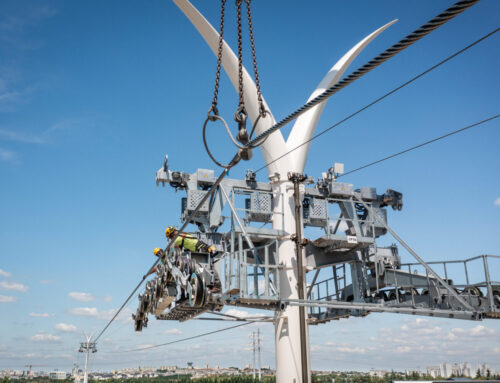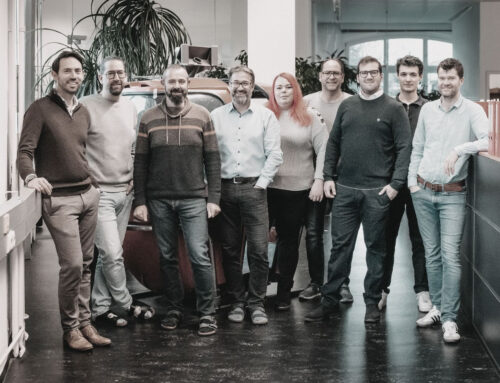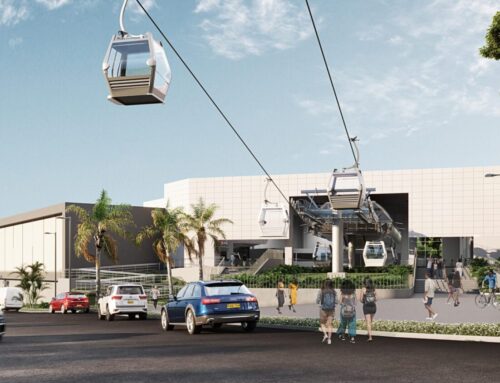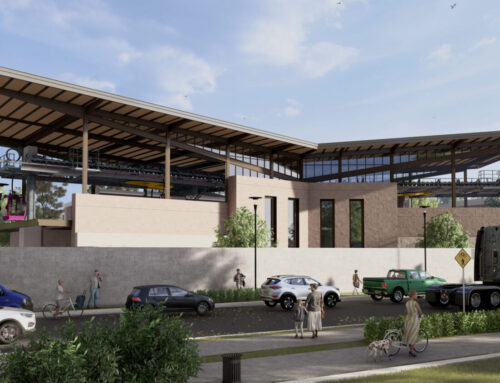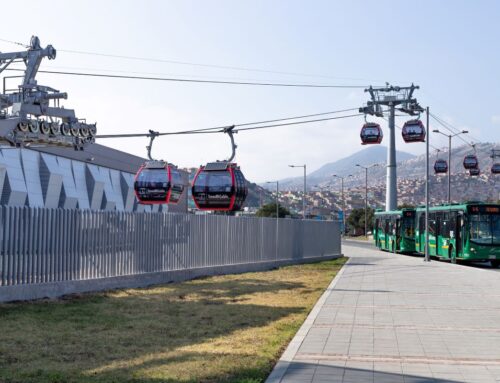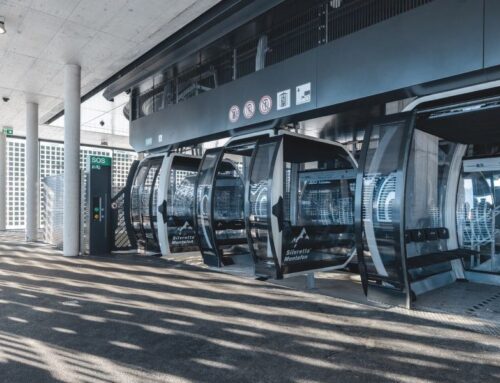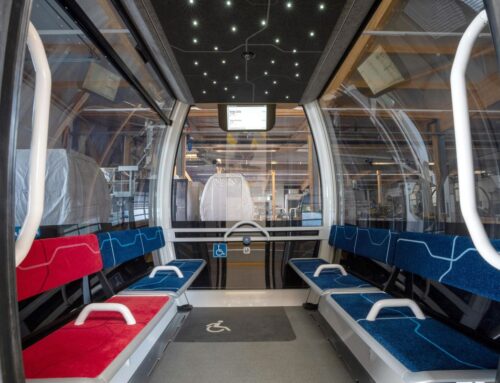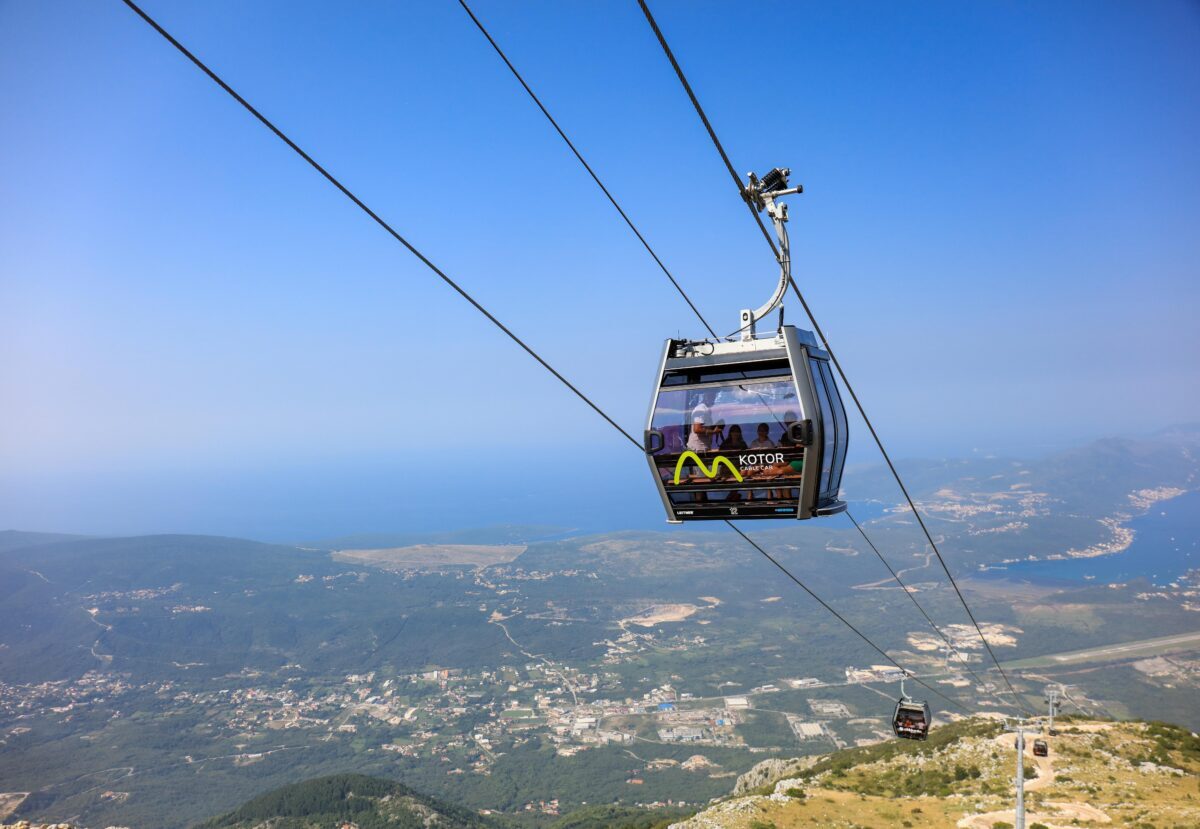
Cities, SI Urban 3/2024, SI-Urban, Tourism
PPP models from a legal perspective
A direct connection from the sea to the mountains is a true rarity in Europe. This rare feature became a reality in Montenegro. In the summer of 2023, one of Europe’s most spectacular cable cars began operating in the UNESCO World Heritage city of Kotor.
The 10-passenger cable car “GD10 Dub Kuk“ starts in the port city of Kotor and reaches the village of Kuk on Mount Lovćen after a 3.9-kilometer journey, at an altitude of 1,348 meters above sea level.
The unique view of the picturesque Bay of Kotor is impressive, as is the elevation gain of 1,316 meters between the departure and arrival stations.
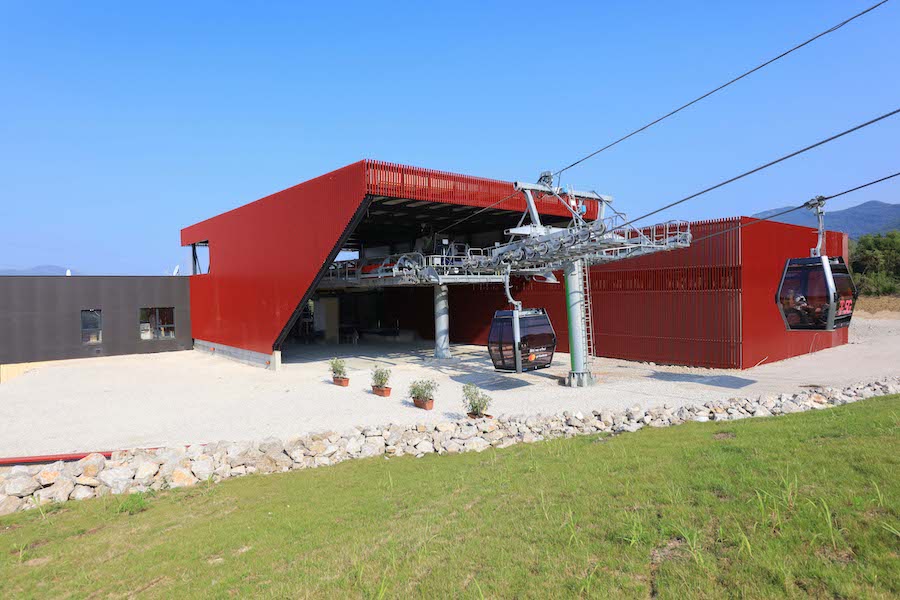
Cable car valley station
The trip starts in the port city of Kotor.
The nearly 25-million euro facility features 48 fully glazed cabins, capable of transporting up to 1,200 people per hour from the Dub valley station to the Kuk mountain station in less than eleven minutes – a significant reduction from the previous 45-minute car journey.
“The cable car will further open up the destination for both regional and international tourists, and it will reduce car and bus traffic on the 55-kilometer main road between Kotor and Cetinje, which circles around Lovćen National Park,” says Sandra Perišić, an attorney at law in cooperation with Karanovic & Partners, which was closely involved in the cable car project.
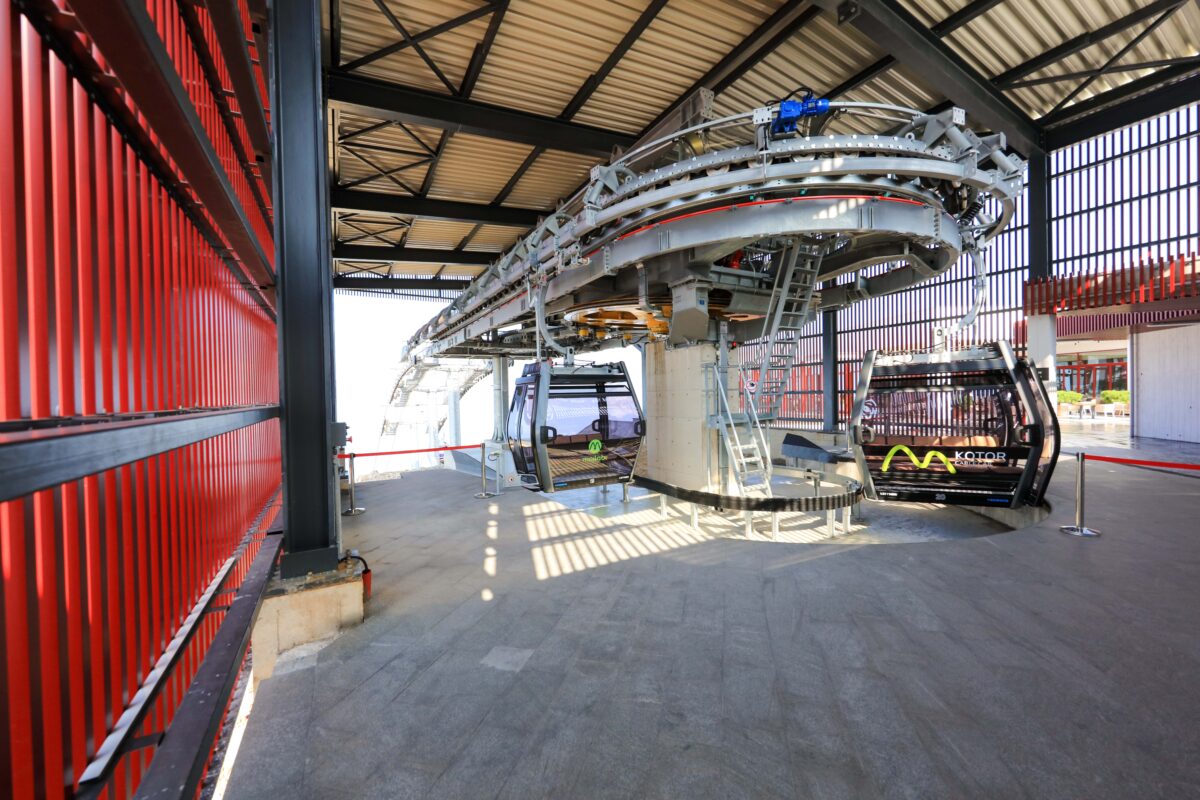
Mountain station
It is located at an altitdude of 1,348 meters.
Project timeline
The idea for a cable car in Kotor was discussed as early as 2006, but the project only became concrete in this decade. “On May 20, 2020, the Government of Montenegro passed the concession law for the implementation of the cable car project, based on the DBFOT model – Design, Build, Finance, Operate, Transfer,” reports Perišić.
On June 5, 2020, the Ministry of Sustainable Development and Tourism issued a public notice inviting bids for the concession, based on an open procedure. “On December 9, 2020, the Government of Montenegro decided to award the concession to a consortium consisting of the construction company Novi Volvox and the cable car manufacturer LEITNER, which had submitted an appropriate bid,” says Perišić.
Shortly thereafter, on December 15, 2020, the concession contract was signed. The consortium later founded the Montenegrin company Kotor Cable Car, which assumed the obligations under the concession contract. CKB Bank provided the financing.

Sandra Perišic
Senior Associate / Karanovic & Partners
Sandra Perišic is an independent Attorney at Law qualified in Montenegro, practicing in cooperation with Karanovic & Partners. She is a senior member of Montenegrin practice and has a solid career of more than ten years in various legal areas as well as in management. Sandra Perisic provides advice to the clients on corporate/commercial matters as well as on matters of real estate, banking and finance, and employment law. She was the local legal team leader on the project financing of the Žicara (cable car) connecting Kotor and the Lovcen National Park.
The PPP model in detail
The main conditions of the concession contract include the provision of access to energy infrastructure and the necessary land by the contracting authority.
“On the other hand, the legal agreement includes a concession period of 30 years, a minimum investment of 18 million euros, and a concession fee of 15 percent of the realized annual profit of the cable car and related facilities,” Perišić explains.
Additionally, the cable car and related facilities will be transferred to the state after the concession period ends.
Obligations for manufacturer/operator
The key obligations of the concessionaire include signing construction contracts, providing a bank guarantee, and establishing a special purpose vehicle – namely the company “Kotor Cable Car.”
“In addition, the contract partner must sign a direct agreement and a loan agreement with a commercial bank, both of which must be approved by the contracting authority,” Perišić adds.
Moreover, LEITNER and Novi Volvox must implement the DBFOT model and pay the concession fee.
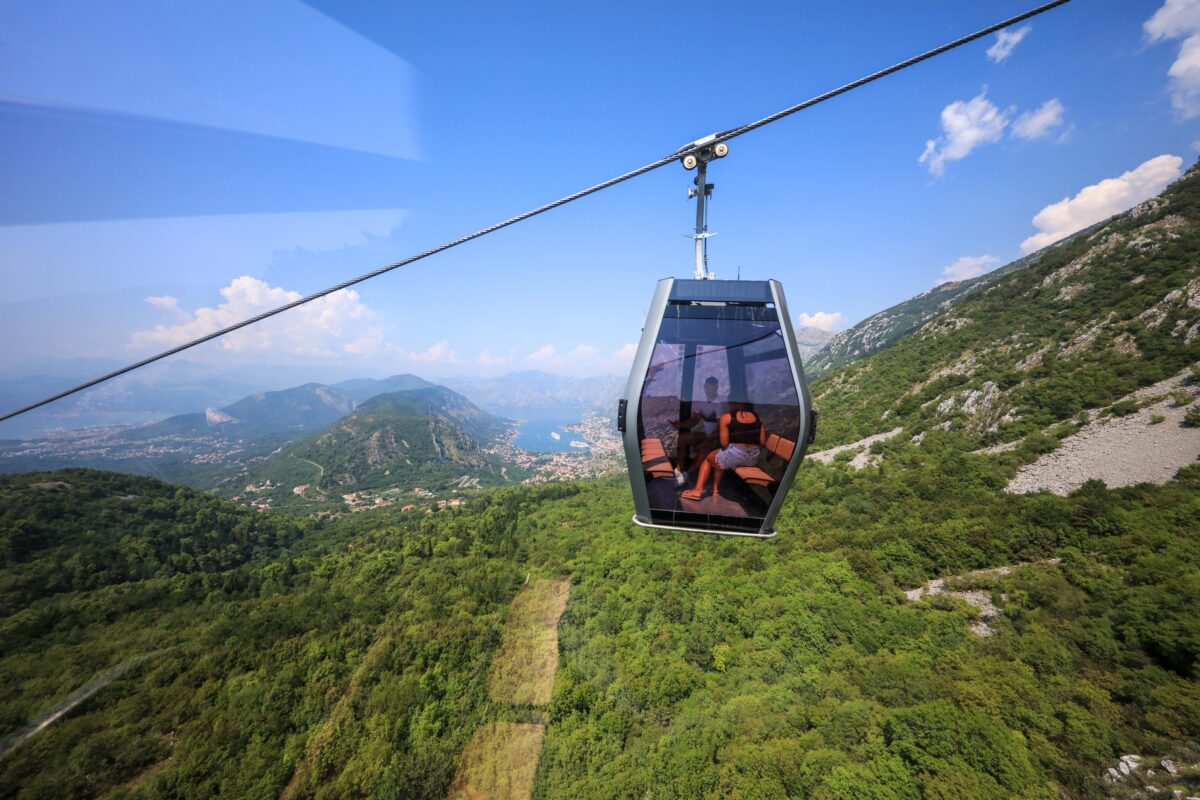
Obligations for the state
The main obligations of the contracting authority – the Government of Montenegro – include the complete expropriation of the land required for the construction of the cable car, registering the contracting authority as the owner of the relevant land, and transferring this land into the possession of the concessionaire.
Overlapping laws
At the time of the concession procedure (2020), both the new concession law and the law on public-private partnerships (PPP law) were in force in Montenegro.
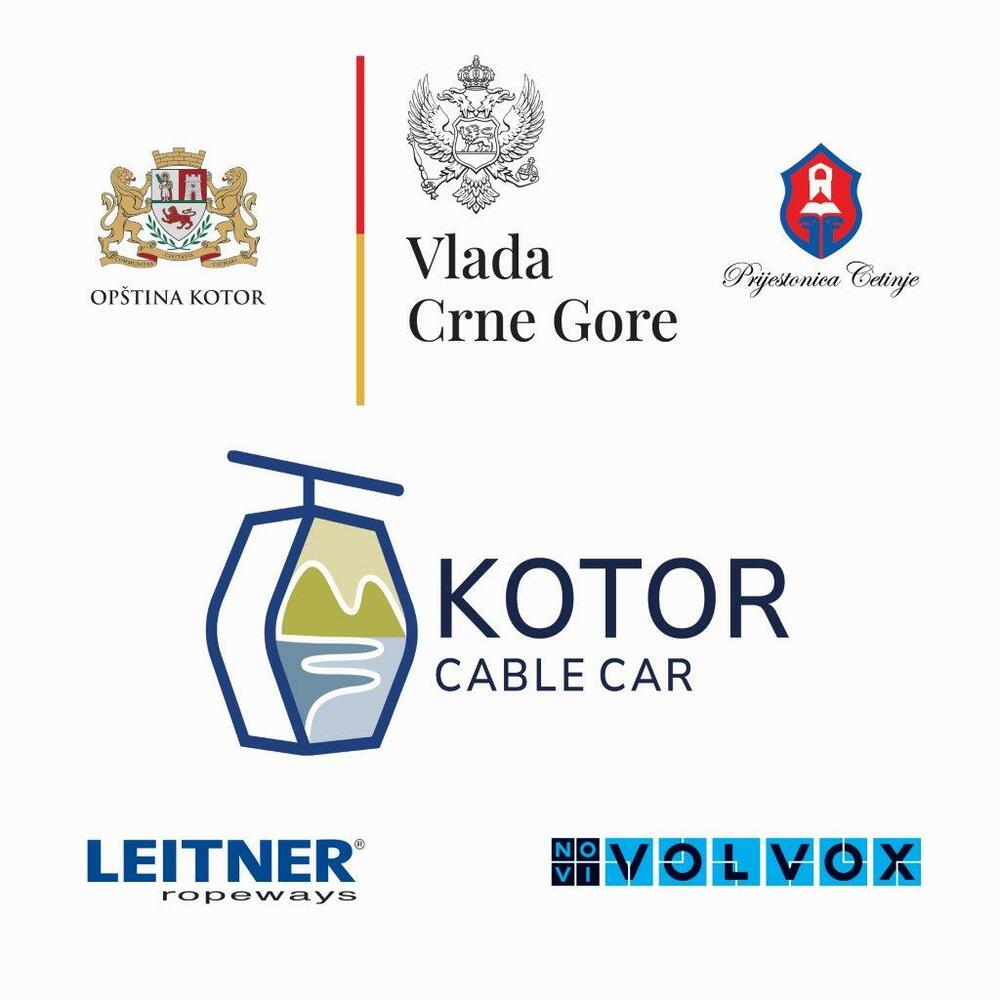
The consortium for constructing the cable car consists of the cable car manufacturer LEITNER and the construction company Novi Volvox. The government of Montenegro acts as the concession grantor. The newly established company Kotor Cable Car is responsible for the operation. The municipality of Kotor and the capital city Cetinje are also involved in the project.
“Although the project was carried out under the concession law, it essentially constitutes a public-private partnership,” Perišić emphasizes. The concessionaire was granted the right to design, build, finance, and operate the cable car. Additionally, rights, duties, and risks were shared between the contracting authority and the concessionaire.
Lastly, the concessionaire is allowed to set the price for its services individually and collect revenues independently.
Outlook
Future cable car projects in Montenegro, however, are expected to be subject to the new PPP law. One of these could be the extension of the Kotor cable car from Lovćen National Park to the city of Cetinje.
